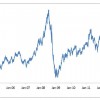Abstract
In the last decade, one of the major global environmental concerns has been greenhouse gas emissions. As part of the political debate over climate change, various policy initiatives are being proposed. Energy intensive firms that emit large amounts of greenhouse gases (e.g., floriculture or nursery firms with heated greenhouses) will be operating in an environment of high regulatory and market uncertainties in the coming years. This 3-page fact sheet presents a brief introduction of the regulatory and market risks faced by energy intensive firms and a case study of emissions reduction potential in the horticulture industry. Written by Zhengfei Guan and published by the UF Department of Food and Resource Economics, March 2013.
References
Guan, Z., and X. Gao. 2012. Carbon policy implication for the greenhouse industry. http://ageconsearch.umn.edu/handle/124684.
Oude Lansink, A., and I. Bezlepkin. 2003. The effect of heating technologies on CO2 and energy efficiency of Dutch greenhouse firms. Journal of Environmental Management 68:73-82. https://doi.org/10.1016/S0301-4797(02)00233-5
Oude Lansink, A., and E. Silva 2003. CO2 and energy efficiency of different technologies in the Dutch glasshouse industry. Environmental and Resource Economics 24:395-407.
Stern, N. 2009. Action and Ambition for a Global Deal in Copenhagen. Centre for Climate Change Economics and Policy, Grantham Research Institute on Climate Change and the Environment, in collaboration with the United Nations Environment Programme (UNEP). http://www.unep.org/pdf/climatechange/ActionAndAmbitionForGlobalDealInCopenhagen.pdf
United States Department of Agriculture, National Agricultural Statistics Service (USDA/NASS). 2012. Floriculture Crops 2011 Summary. United States Department of Agriculture, National Agricultural Statistics Service, Washington, D.C. ISSN: 1949-0917. http://usda01.library.cornell.edu/usda/current/FlorCrop/FlorCrop-05-31-2012.pdf
Unless otherwise specified, articles published in the EDIS journal after January 1, 2024 are licensed under a Creative Commons Attribution-NonCommercial-NoDerivs 4.0 International (CC BY-NC-ND 4.0) license.

